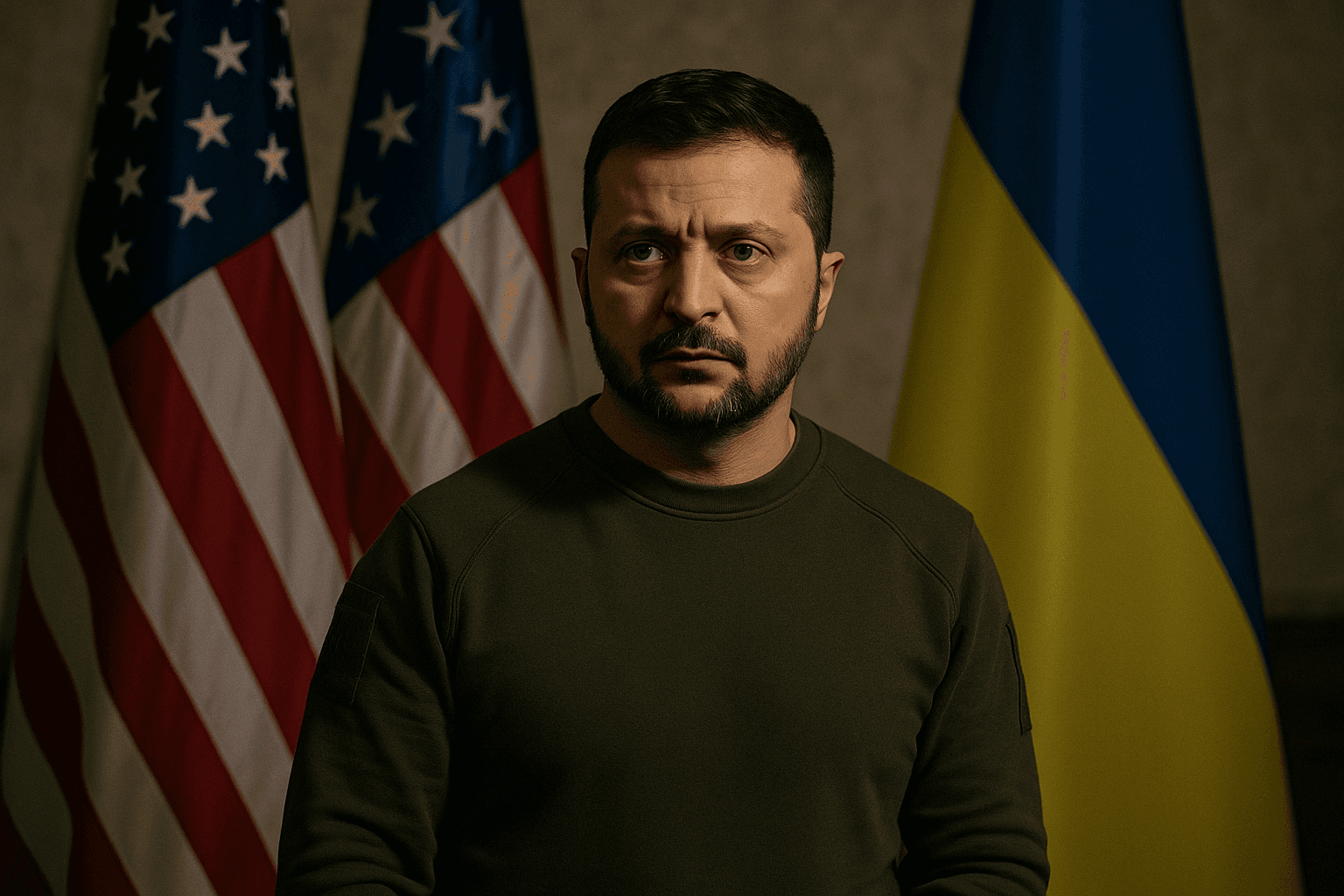Zelenskiy Says Kyiv Ready To Advance U.S. Backed Peace Plan
President Volodymyr Zelenskiy told a coalition of allies that Kyiv was ready to move forward with a U.S. backed peace deal and that he would discuss its sensitive points directly with U.S. President Donald Trump, while urging European partners to shape a framework for deploying a reassurance force. The appeal signals Kyiv's push to internationalize security guarantees and to lock in long term support as Moscow shows no willingness to end its war.

President Volodymyr Zelenskiy said on November 25 that Ukraine was ready to press ahead with a U.S. backed peace plan and that he was prepared to discuss its sensitive elements in talks with U.S. President Donald Trump, while insisting those conversations include European allies. In a speech to the so called coalition of the willing, a copy of which was seen by Reuters, Zelenskiy urged European leaders to develop a framework for deploying a "reassurance force" to Ukraine and to continue backing Kyiv for as long as Moscow showed no willingness to end its war.
Zelenskiy framed the initiative as an effort to convert broad diplomatic support into a concrete security architecture that could deter renewed aggression and provide a pathway to durable settlement. By pressing for direct discussions with the American president and an active role for European capitals, Kyiv sought to bind Washington and its continental partners to collective responsibilities that go beyond short term military aid.
The proposal raises immediate strategic and legal questions. Any deployment described as a reassurance force would require host nation consent, careful rules of engagement and likely a multilateral mandate to ensure legitimacy in the eyes of partners and international institutions. For European governments already wary of escalation, the plan will test political will, logistical capacity and legal frameworks for stationing foreign troops on Ukrainian soil in a volatile conflict zone.
Politically, Kyiv is navigating a narrow window. The U.S. backing gives the scheme geopolitical weight, yet it also ties Ukrainian prospects to the dynamics of American domestic politics and to President Trump’s calculus about negotiations with Moscow and relations with Europe. For European leaders, the proposal confronts them with a choice between deeper security commitments in Eastern Europe and the risks of entanglement in an active theater of war.

Russia’s continued refusal to negotiate a ceasefire, as Zelenskiy underscored, remains the principal obstacle to any peace accord. Moscow is likely to denounce international deployments as provocative, complicating efforts to secure a multinational arrangement that includes nations Moscow regards as adversaries. That tension will shape not only diplomatic bargaining but also broader legal questions about sovereignty, the use of force and the role of international organizations in conflict resolution.
Beyond the immediate calculus, Kyiv’s appeal points to a longer term reordering of European security architecture. If European capitals respond by building a credible, coordinated reassurance capability, it could shift the balance of deterrence and signal a collective commitment to Ukraine’s territorial integrity. Conversely, a muted response would leave Kyiv reliant on ad hoc bilateral support and prolong the humanitarian and political costs of war.
As discussions among Kyiv, Washington and European capitals begin, the challenge will be to turn diplomatic intent into operational reality while managing the diplomatic sensitivity of confronting Moscow and protecting the fragile consensus that underpins allied action.

